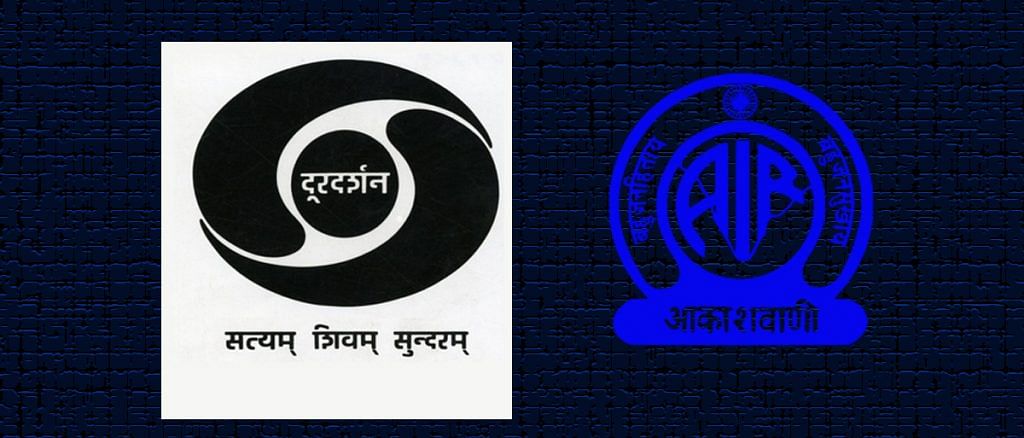Move raises concerns of increased state interference. Centre to cite Prasar Bharati’s ‘inefficiency’ as the reason for its dissolution.
New Delhi: The Narendra Modi government is actively considering dissolving Prasar Bharati after 2019 while exploring possible models to run the two bodies under it — Doordarshan (DD) and All India Radio (AIR) — including converting them into public sector companies.
The move raises concerns that DD and AIR could lose their autonomy in the future. Transforming the two bodies into PSUs will allow the government to have greater control over them, as against their current status, where they are technically autonomous bodies under the Prasar Bharati (Broadcasting Corporation of India) Act, 1990.
So far, the Information and Broadcasting ministry has held at least three meetings with officials of DD and AIR in this regard.
Highly-placed ministry sources said the ministry is keenly exploring the possibility of turning them into PSUs, where the central government will have the major stake while offering some degree of control to the states.
The government’s proposal is in line with the recommendations of a panel of secretaries which had, last year, called for terminating Prasar Bharati’s operations and turning AIR and DD into corporations.
The Information and Broadcasting ministry has said on several occasions that it will not fund Prasar Bharati beyond 2019. As of now, a major chunk of the ministry’s annual budget is allocated for Prasar Bharati.
Doordarshan currently runs 23 TV channels while AIR has 416 radio channels.
Prasar Bharati’s redundancy
The government is likely to justify its decision on the grounds that Prasar Bharati is no longer performing its role as a public service broadcaster.
“It has turned into a white elephant over the years, given its dependence on government grants, including for the salaries of the Prasar Bharati secretariat and all capital expenditure,” a ministry official said. “How can it ever function purely as a public service broadcaster if it has to depend on government funds?”
Sources also said that during the discussions between the ministry and Prasar Bharati officials, it was brought to the fore that while Prasar Bharati was conceived as an overarching body for DD and AIR to formulate broadcast policies and other finances and human resource-related issues, it is actually operating like the director general of the two bodies.
The government is also likely to cite against Prasar Bharati its inefficiency in handling old infrastructure, dwindling funds for programmes, a stagnated and non-motivated staff, vacancies across the country in key programme production positions and ad-hoc appointments of non-professionals on deputation and consultants in the over 20 years of its existence.
“Even as the government is exploring models for the corporatisation of AIR and DD, it will have to take into account that they are public service broadcasters and do not have the primary motive of generating profits,” an official said.
Sources said that at the meetings, officials deliberated upon importing the British Broadcasting Corporation (BBC) model, which involves levying a license fee on everyone having a connection.
The Centre, however, is not keen on levying a license fee on the audiences of AIR and DD and hence has indicated that the model will not work, ThePrint has learnt. Countries such as Japan and Germany follow a similar model for their public service broadcasting.
